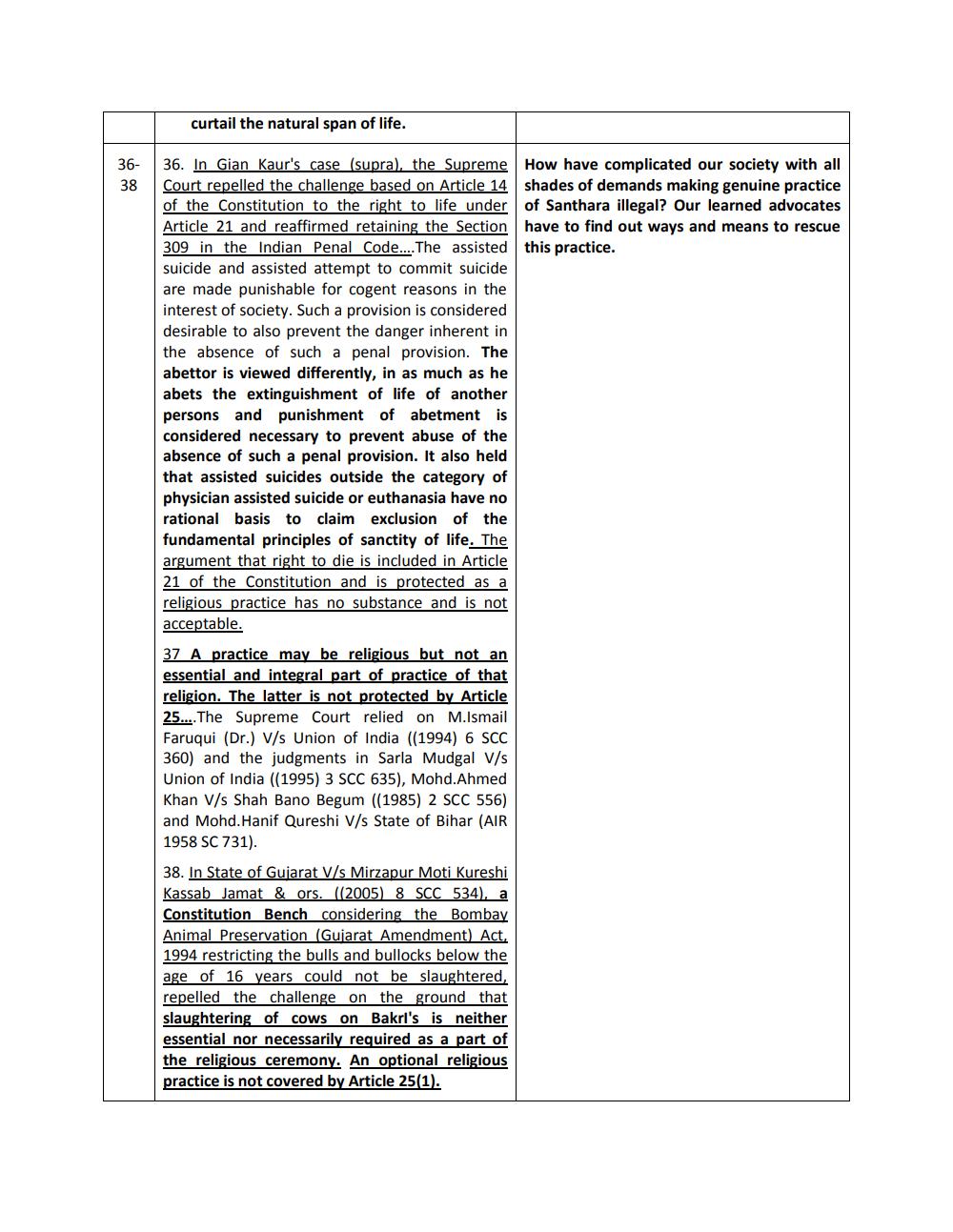________________
curtail the natural span of life.
36
36. In Gian Kaur's case_(supra), the Supreme How have complicated our society with all Court repelled the challenge based on Article 14 shades of demands making genuine practice of the Constitution to the right to life under of Santhara illegal? Our learned advocates Article 21 and reaffirmed retaining the Section have to find out ways and means to rescue 309 in the Indian Penal Code.... The assisted this practice. suicide and assisted attempt to commit suicide are made punishable for cogent reasons in the interest of society. Such a provision is considered desirable to also prevent the danger inherent in the absence of such a penal provision. The abettor is viewed differently, in as much as he abets the extinguishment of life of another persons and punishment of abetment is considered necessary to prevent abuse of the absence of such a penal provision. It also held that assisted suicides outside the category of physician assisted suicide or euthanasia have no rational basis to claim exclusion of the fundamental principles of sanctity of life. The argument that right to die is included in Article 21 of the Constitution and is protected as a religious practice has no substance and is not acceptable. 37 A practice may be religious but not an essential and integral part of practice of that religion. The latter is not protected by Article 25.... The Supreme Court relied on M.Ismail Faruqui (Dr.) V/s Union of India ((1994) 6 SCC 360) and the judgments in Sarla Mudgal V/s Union of India ((1995) 3 SCC 635), Mohd.Ahmed Khan V/s Shah Bano Begum ((1985) 2 SCC 556) and Mohd. Hanif Qureshi V/s State of Bihar (AIR 1958 SC 731).
38. In State of Gujarat V/s Mirzapur Moti Kureshi Kassab Jamat & ors. ((2005) 8 SCC 534), a Constitution Bench considering the Bombay Animal Preservation Gujarat Amendment) Act, 1994 restricting the bulls and bullocks below the age of 16 years could not be slaughtered, repelled the challenge on the ground that slaughtering of cows on Bakrl's is neither essential nor necessarily required as a part of the religious ceremony. An optional religious practice is not covered by Article 25(1).




